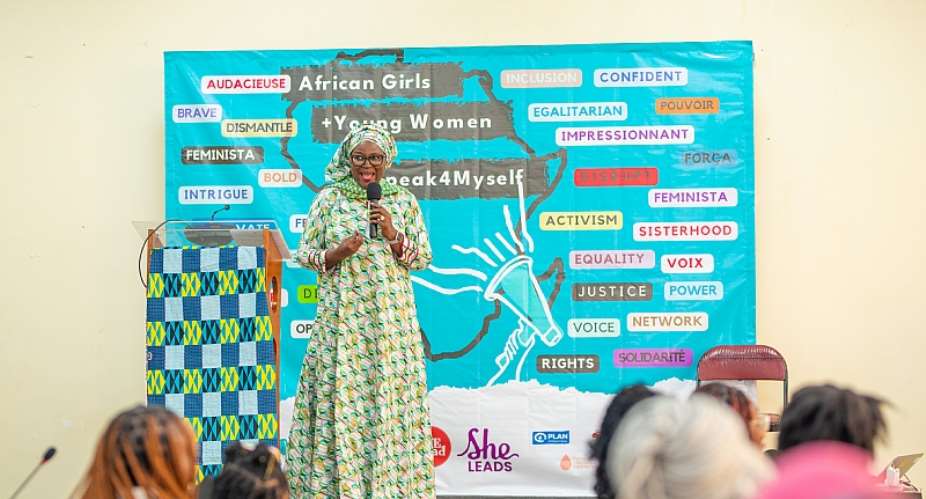Women leaders drawn from several African countries have called for the universal ratification of the Maputo protocol geared towards defining the rights of women and girls.
Speaking at the ongoing 3rd FEMNET AGYW Festival Signature in Nairobi, the women leaders made a clarion call to the continent’s political leaders to sign, ratify, domesticate, and implement the protocol-which they said “speaks to the core issues that affect women and girls in the continent”
Honourable Commissioner Janet Ramatoulie Sallah-Njie, the AU Special Rapporteur of Women in Africa noted that having the protocol at the regional level wasn’t enough noting that “its domestication is vital”
“We need to make sure that this instrument has an impact on the life of African women and girls. And this can only be achieved by universally ratifying the protocol,” said Commissioner Sallah-Njie on the sidelines of the ongoing 3rd FEMNET AGYW Festival in Nairobi.
It is now two decades since African governments adopted the Protocol to the African Charter on Human and Peoples’ Rights on the Rights of Women in Africa-commonly known as the Maputo Protocol. To date,44 out of the 55 African countries have ratified the protocol.
The commissioner noted that during the adoption of the protocol, African Heads of State had a solemn declaration to ensure full implementation of gender equality.
“But the ratification and implementation of this instrument haven’t been fully achieved,” she noted.
Mary Wandia Wanjiru, Director of Programs at Co-Impact, a global philanthropic collaborative for systems change noted that lack of political will is stiffing the attainment of the third gender rule.
“In Kenya, for example, what we have is a mixed picture. We have made progress in the 2010 Constitution, where women are now recognized as citizens of this country. Various rights for women and girls have been recognized, including the right to health, to live free of violence, and right to participate in decision making,” said Wanjiru.
“But the big challenge has been the implementation. Since 2010, why are we not seeing the implementation of the two-thirds gender rule by the previous regime? This tells us that there is still no political will.”
Sallah-Njie noted that some member states have adopted policies, measures, and laws that speak to implementing gender equality in the Maputo protocol.
“But we must do better. That is why it's our resolve to keep the fight alive. We want to be more effective in terms of the implementation of the protocol going forward,” she added.
She further added that implementing some of the women and girls' rights provided in the protocol calls for what she termed as “system change in institutions, structures, and infrastructure to facilitate the implementation of the rights ”
“For example, let's take a look at Violence against women. We must put in place laws, policies, and institutions such as safe houses for women’s psycho-social support. And all of these require resources so that our women can benefit from the rights that are enshrined in the protocol,” said the commissioner adding that financing is crucial.
The resources that are allocated for the gender ministry across Africa are still low, intimated the AU rapporteur.
“It is high time that we really move the bar in terms of gender budgeting allocation across the continent and ensure that we put our money where our mouth is. We have laws and money to spend for the effective implementation of these laws,” noted Sallah-Njie.
By Clifford Akumu





 EC’s request to use Ghana Card as sole document for identification would’ve prev...
EC’s request to use Ghana Card as sole document for identification would’ve prev...
 Voter registration: Always check to avoid 2020 election results errors — Kwamena...
Voter registration: Always check to avoid 2020 election results errors — Kwamena...
 Voter registration: Ghana isn't safe; December polls might be 'each one for hims...
Voter registration: Ghana isn't safe; December polls might be 'each one for hims...
 Rapid decline of our country, its democratic institutions worrying, distressing ...
Rapid decline of our country, its democratic institutions worrying, distressing ...
 Religious tolerance: My brothers and sisters are Christians, I cannot say that I...
Religious tolerance: My brothers and sisters are Christians, I cannot say that I...
 CSOs consider civil action against gov't over alleged destruction of protected f...
CSOs consider civil action against gov't over alleged destruction of protected f...
 Domelevo, Kpebu, Gyampo and 83 others petition parliament to probe EOCO’s conduc...
Domelevo, Kpebu, Gyampo and 83 others petition parliament to probe EOCO’s conduc...
 “Take precaution, don’t be in a hurry to go and die” — Author advise drivers, pe...
“Take precaution, don’t be in a hurry to go and die” — Author advise drivers, pe...
 Electoral Commission has been reduced to 'Error Commission' in simple arithmetic...
Electoral Commission has been reduced to 'Error Commission' in simple arithmetic...
 Banking clean-up helped prevent collapse of financial sector – Bawumia
Banking clean-up helped prevent collapse of financial sector – Bawumia
